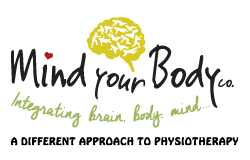Informed Consent
Your informed consent is required for all treatment provided by this practice.
- You may withdraw your consent at any time. Treatment will cease immediately if consent is withdrawn.
- If you become uncomfortable with your treatment at any time, please inform your physiotherapist.
- All forms of treatment carry some risk. Risks will be explained prior to treatment at which time you may choose to continue or discontinue treatment.
Physiotherapy treatment is generally an effective and safe form of treatment however like any treatment there are benefits and risks. This is not a waiver form. The purpose of this form is to let you know what your rights are and how we address the issue of collaborative decision making and informed consent between physiotherapist and patient.
Physiotherapists in this practice will discuss your condition and options for treatment with you so that you are appropriately informed and can make decisions relating to treatment. You may choose to consent to or refuse any form of treatment for any reason including religious or personal grounds. You have the right to a second opinion at anytime. Once you have given consent, you may withdraw that consent at any time.
Please read the following:
Questions of a personal nature
Your physiotherapist may ask personal questions relating to your injury and how your injury impacts on your activities of daily living. The more information you provide, the more likely it is that the physiotherapist can provide an effective treatment. It is your choice as to what information you choose to provide. If you feel uncomfortable with a particular question or group of questions, please let the physiotherapist know and they will cease.
Physical contact
During the examination, assessment and treatment it will be necessary for your physiotherapist to make physical contact. Your physiotherapist will ask your permission before making physical contact with you in any way. Physical contact requires your express consent. You may withdraw that consent at any time at which point, all physical contact will cease immediately. Please inform your physiotherapist if you feel uncomfortable at any time.
Risks related to treatment
As with all forms of treatment, there are risks and benefits. Some therapy techniques have a very slight risk of causing injury. A remote possibility of injury to structures such as but not limited to; nerves, bones, muscles, ligaments, discs, skin or arteries exists. Research evidence indicates that skilled cervical (neck) manipulation is safer than taking anti-inflammatory medication. In very rare circumstances (less than 1 in 163,000 to 5.8 million), damage may occur to the vertebral arteries in the neck and the patient may suffer a stroke. There is a small risk that treatment may produce pressure on the nerves going down the arm or leg. Allergic skin reactions to massage oils, strapping tapes or topical applications are also a possibility. The physiotherapist will discuss any foreseeable risks with you prior to administering treatment. In some cases, the physiotherapist may ask you to read information related to a particular treatment and they may request that you sign a further consent form. This is to ensure that you fully understand any risks involved. You may withdraw your consent at any time even if you have previously signed a consent form.
Children and minors
Consent from a custodial parent is required to treat a minor.
Substituted consent
Where a person is incapable of understanding the risks and benefits of treatment, consent may be provided by another person legally authorised to provide such consent. Evidence of legal authorisation is required in such circumstances.
You need to let us know
The risk related to some treatments can increase if the physiotherapist is not aware of certain facts. Please inform the physiotherapist if you have:
- A pacemaker or heart condition
- Suffered from blood clots, thrombosis or stroke
- Suffered from diabetes
- Are currently taking medication
